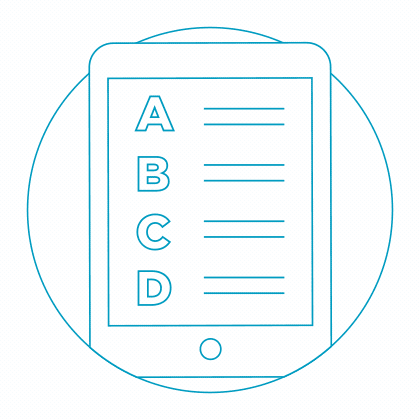Probability - Online Test
Let X denote same number of heads Both will get.
So X can take values
X=0 ( both get 0 number of head)
X =1 ( both get 1 head)
X = 2 ( both get 2 heads)
X = 3 ( both get 3 heads)
X = 4 ( both get 4 heads)
So , P(X = 0 ) =Probabilty of getting no heads= 1/16 × 1/16 = 1/256 [by multiplication theorem P(Xi Xj) = P(Xi).P(Xj) ]
P(X=1) = Probabilty of getting 1 head = 4/16 × 4/16 = 16/256
P(X =2) = Probabilty of getting 2 heads = 6/16 × 6/16 = 36/256
P ( X = 3) =Probabilty of getting 3 heads=4/16 × 4/16 = 16/256
P( X= 4) =Probabilty of getting 4 heads = 1/16 × 1/16 = 1/256
Therefore P ( both get same number of head in a throw of 4 coins each )
= P(X=0) + P(X=1) + P(X=2) + P(X =3) + P(X =4)
= 1/256 + 16/256 + 36/256 + 16/256 + 1/256
= 70/256 = 35/128
When three dice are rolled, total number of outcomes =n(S)=n=63 =216
It is given that the numbers on all the three dice are identical
Hence the favourable outcomes are (1,1,1),(2,2,2),(3,3,3),(4,4,4),(5,5,5),(6,6,6)
Hence no. of favourable outcomes=m=6
Hence required probability=
Sample Space is
S = { HH, HT, T1, T2, T3, T4, T5, T6 }
so number of outcomes in sample space is 8
